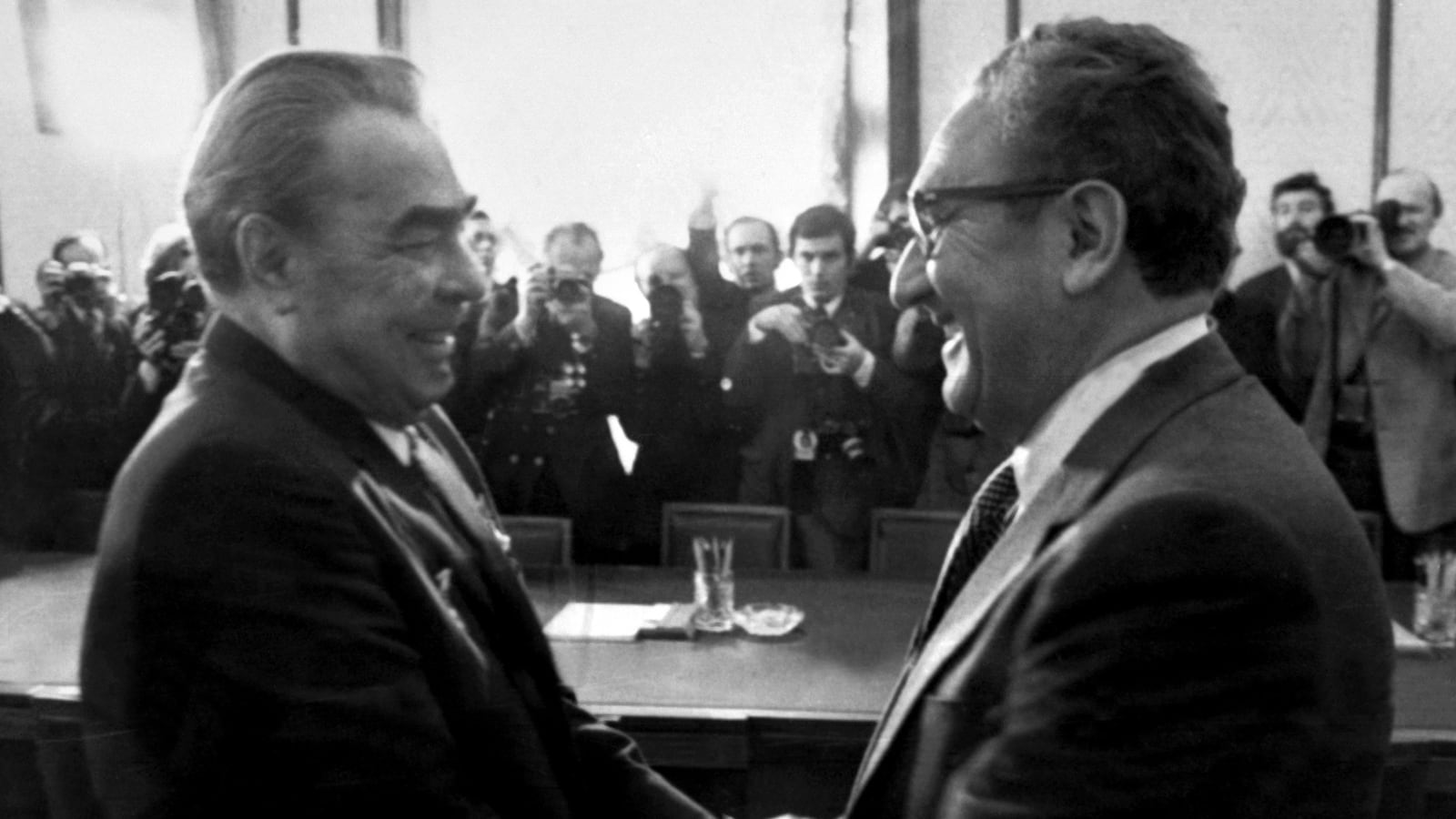Why has so much of the public debate over post-9/11 American foreign policy been so lousy? Because we do such a lousy job of talking about the last major era in American foreign policy: the cold war.
A small example. Yesterday Commentary discovered that it was the 100th birthday of the late Henry “Scoop” Jackson, the hawkish Democratic senator who helped spawn neoconservatives like Richard Perle and Paul Wolfowitz. Blogger Jonathan Tobin commemorated the event with a burst of hagiography. Jackson, he enthused, “was a bulwark of the fight for freedom against Communism.”

Almost every word of that sentence is wrong. First, the cold war did not pit “freedom against Communism.” To be sure, there were certain places (Western Europe) at certain moments (the late 1940s) where the struggle between pro-Soviet communist parties and their anti-communist rivals really may have represented a struggle between communism and freedom. (Although it's worth remembering that some of the most powerful anti-communist, “pro-freedom” parties were socialist). And, of course, when communism crumbled in Eastern Europe in the late 1980s, democracy often took its place.
But in the post-colonial world, the struggle between communism and anti-communism rarely had much to do with freedom. Unless, of course, you consider Chiang Kai-shek, Ngo Dinh Diem, Fulgencio Batista, Anastasio Somoza, Augusto Pinochet, Ferdinand Marcos, Mohammad Zia-ul-Haq and the leaders of apartheid South Africa—all American-backed (or at least tolerated) bulwarks of the anti-communist struggle—to be champions of individual freedom.
Scoop Jackson, like most cold war hawks, strongly supported anti-communist dictators. But to understand the true absurdity of Tobin’s statement, it’s worth remembering that Jackson backed communist dictators as well. Not only was the cold war not always a struggle between freedom and communism, it wasn’t even always a struggle between anti-communism and communism. In the late 1940s, the United States provided Marshall Plan aid to Josip Broz Tito, the communist but anti-Soviet leader of Yugoslavia. And by the 1970s, the United States had effectively allied itself with communist China even though in purely ideological terms, Beijing was to Moscow’s left. Jackson enthusiastically backed the Sino-American rapprochement.
The point is not that all of Jackson’s foreign policy stances were wrong. As I’ve written, I think there are admirable parts to his legacy. But Jackson understood, in a way some of his contemporary admirers don’t, that the cold war was a geopolitical struggle in which America repeatedly allied with the enemies of freedom, anti-communist and communist. That’s worth remembering today, as the United States allies with some tyrannical Islamist regimes (Saudi Arabia) in order to weaken others (Iran). The more honest we are about America’s foreign policy past, the more honest we can be about its foreign policy present.






